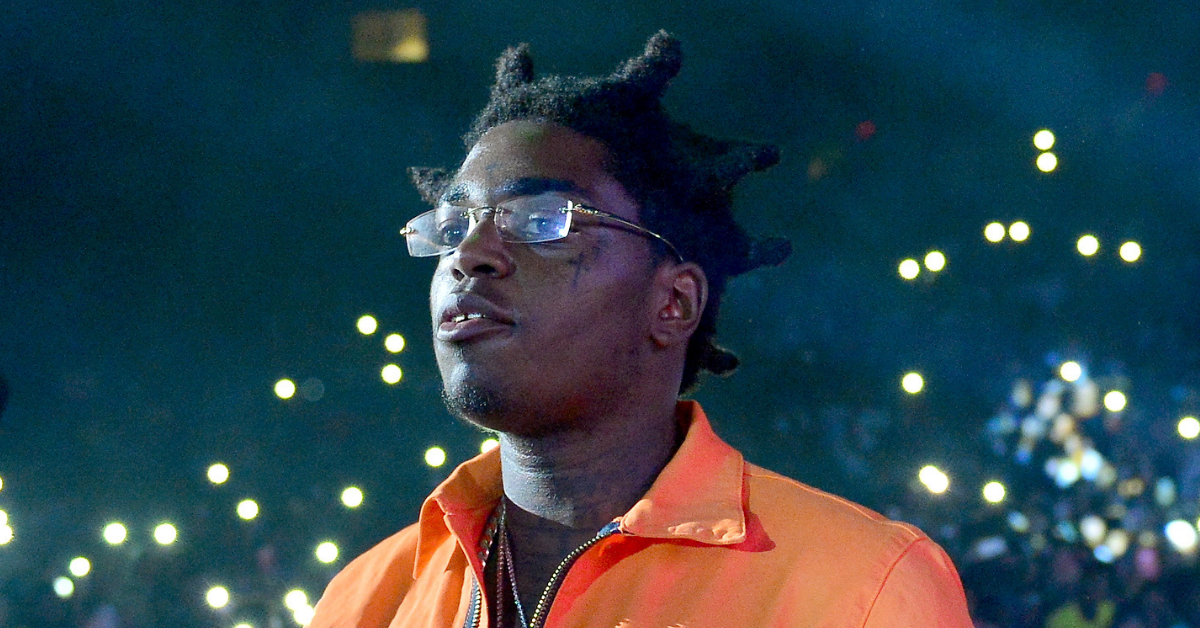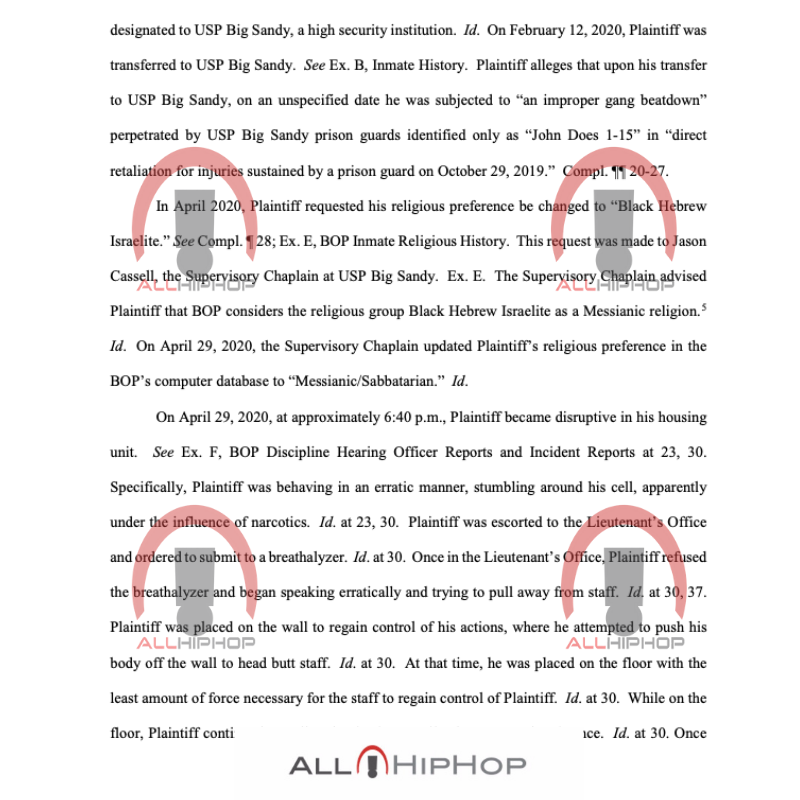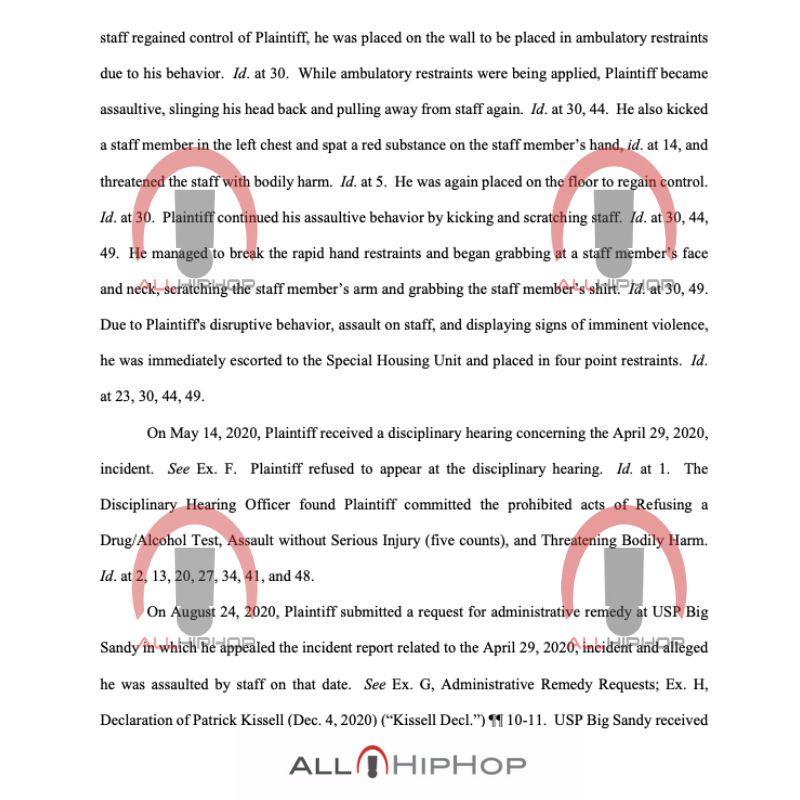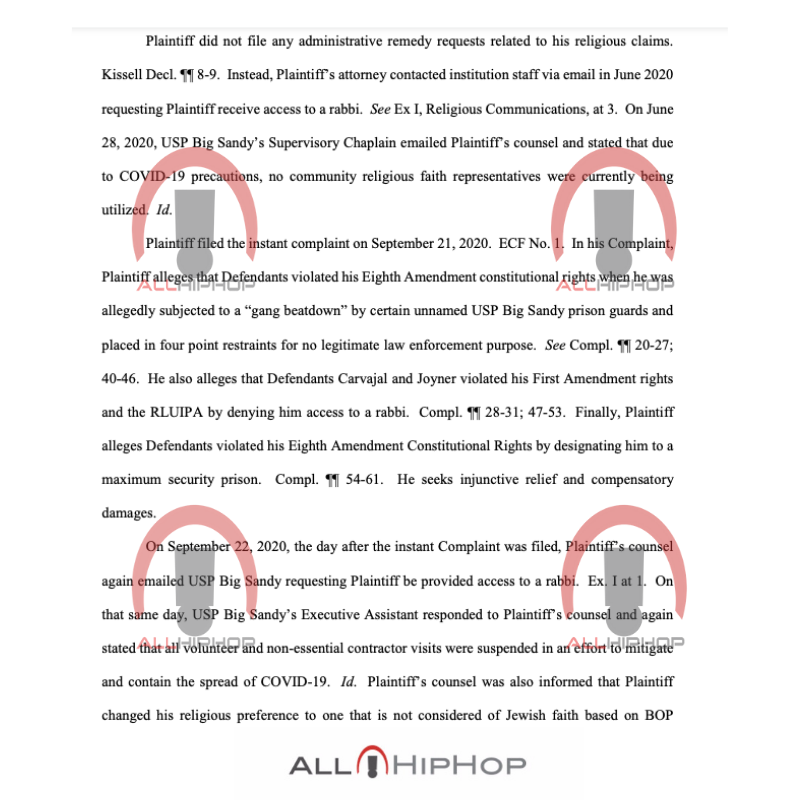Several high-level administrators with the Federal Bureau Of Prisons are pushing back against Kodak Black’s lawsuit claiming he was tortured at the hands of prison guards at the United States Penitentiary Big Sandy in Kentucky.
Kodak landed at Big Sandy after he had an altercation with another inmate in October of 2019 when he was housed at a Federal prison in Miami during his pre-trial detention, which resulted in the injury of a correctional officer.
In February of 2020, Kodak was sent to USP Big Sandy.
Kodak, real name Bill K. Kapri, maintained the beating was vengeance for the injuries he allegedly inflicted on the correctional officer during his fight at the Miami prison in October of 2019.
In a new legal filing, reps with the BOP denied abusing the rapper. They outlined one disturbance on April 29th, 2020, when the rapper became disruptive “apparently under the influence of narcotics.”
The rap star was taken to a lieutenant’s office and ordered to submit to a breathalyzer test, which he refused. A struggle ensued when Kodak allegedly tried to headbutt staffers.
The guards attempted to apply ambulatory restraints, but Kodak managed to break free and started grabbing at a staff member’s face and neck.
He also supposedly spit a red substance on a staff member’s hand.
“Due to Plaintiff’s disruptive behavior, assault on staff, and displaying signs of imminent violence, he was immediately escorted to the Special Housing Unit and placed in four-point restraints,” acting United States Attorney Michael R. Sherwin said.
Kodak’s defiant behavior continued when he refused to appear at a disciplinary hearing in May of 2020.
Kodak was charged with five counts over the April 2020 fight with the guards: refusing a drug/alcohol test, assault with serious injury (5 counts), and threatening bodily harm.
Kodak appealed the incident report from the April 2020 fight with the guards and declared he was the one who was attacked by staff members.
Multiple appeals by Kodak Black were dismissed by the BOP as untimely. His filing also “contained too many continuation pages and raised more than one issue.”
But prison officials claim Kodak is a member of the Black Hebrew Israelites, who are not recognized as members of the Jewish faith according to BOP documents.
Furthermore, the BOP insisted they told Kodak that all volunteer and non-essential contractor visits were suspended due to the COVID-19 pandemic.
In October of 2020, Kodak was transferred out of Big Sandy and sent to USP Thomson, another high-security prison in Illinois.
As a result of the transfer, the BOP is demanding Kodak’s lawsuit be dismissed because defendants “Carvajal and Joyner are entitled to Qualified Immunity,” which shields government officials from being held liable for constitutional violations and excessive force.
Kodak Black is slated to be released in on November 3rd, 2022.



